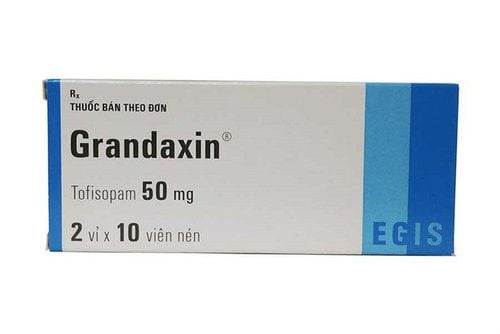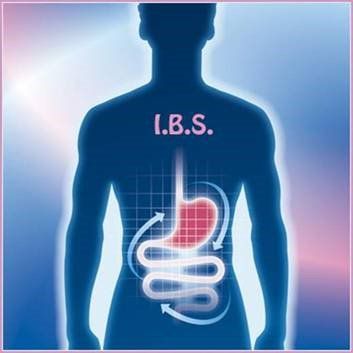This is an automatically translated article.
Irritable bowel syndrome (IBS) is a functional syndrome characterized by chronic abdominal pain accompanied by altered bowel habits. Although often thought of as a dysfunction, there is now substantial evidence that IBS is associated with a poor quality of life and a significant negative impact on work and social spheres. Emerging data suggest an interaction between psychiatric disorders and irritable bowel syndrome, which demonstrates that this association should not be ignored when developing screening and treatment strategies.1. What is irritable bowel syndrome?
Irritable bowel syndrome (IBS) is a functional syndrome characterized by chronic abdominal pain accompanied by altered bowel habits. IBS is a painful condition associated with significant psychological distress and accompanying mental illnesses such as higher levels of anxiety or depression and suicidal ideation, which have a negative impact on quality of life. In 1992, the Rome committee published the first clinical diagnostic criteria for irritable bowel syndrome that can also be used in research. The latest version, the Roma III diagnostic criteria, is the current gold standard for diagnosing patients with this syndrome.
According to these criteria, irritable bowel syndrome was defined as recurrent abdominal pain or discomfort at least 3 days/month in the last 3 months associated with two or more of the following:
Increased condition defecation. Onset is related to change in frequency of bowel movements. Onset involves a change in the appearance (appearance) of the stool. Irritable bowel syndrome can be classified into categories based on major bowel habits: IBS with constipation (IBS-C), IBS with diarrhea (IBS-D), mixed IBS (IBS-M) and Unclassified IBS (IBS-U).
The etiology of this syndrome is multifactorial and is thought to be dysregulation of the brain-intestinal axis, HPA axis, changes in gastrointestinal motility, visceral hypersensitivity, infectious factors, enhanced response immune response, genetic susceptibility, and psychosocial factors.
Communication between the central nervous system and the enteric nervous system is a two-way connection: The brain affects the function of the enteric nervous system, and the gut affects the brain through vagal induction and sympathetic. Symptoms may be due to dysfunction mainly in the central nervous system or in the intestine, or a combination of the two.
Stress often worsens the symptoms of patients with irritable bowel syndrome h. The hypothalamic-pituitary-adrenal axis (HPA axis) is an important component of the regulatory mechanism that governs behavioral, neuroendocrine, and autonomic responses to stress.

Căng thẳng có thể gây ra hội chứng ruột kích thích
The hypothalamic-pituitary-adrenal (HPA) axis and the sympathetic nervous system (SNS) are the two main branches of this central stress response system. Overactivity of this pathway may be involved in the pathophysiology of irritable bowel syndrome.
For example, brain and gut overreaction to corticotropin-releasing hormone (CRH) and changes in adrenocorticotropic hormone (ACTH) and cortisol, and catecholamine levels have been reported in IBS patients. Indeed, the use of peripheral CRH improved colonic function and visceral perception in response to bowel irritation in IBS patients.
In addition, previous studies have shown that irritable bowel syndrome is associated with significantly lower vagus nerve and increased sympathetic activity. Therefore, it has been suggested that interactions between various factors such as the brain-gut axis, HPA axis, and inflammatory response may exacerbate IBS symptoms and thus may play an important role. important in the etiology of this syndrome.
2. The relationship between irritable bowel syndrome and mental disorders
Psychological, social and genetic factors appear to play an important role in the symptom development of irritable bowel syndrome through several mechanisms: Altered HPA axis modulation, increased awareness of vulnerable visceral or psychological stimuli.
Digestive symptoms have been recognized to occur in connection with fear, anxiety and stress. Peristalsis responds to changes in emotional state. In addition, stress has been shown to affect both peristalsis and visceral hypersensitivity.
Over the years, numerous studies have evaluated the relationship between irritable bowel syndrome and psychiatric disorders. Co-morbidities with psychiatric disorders ranged from 54 to 94% in treated irritable bowel syndrome patients.
Mental disorders and irritable bowel syndrome seem to have two-way comorbidities. The frequency and severity of symptoms of IBS in patients with anxiety and psychosis are well documented.
The progression of IBS symptoms appears to be influenced by emotional factors and psychosocial stressors. Those factors may contribute to predisposition, precipitation, and maintenance of IBS symptoms, and they also influence clinical outcomes.
Psychiatric interventions (pharmacology or psychotherapy) have proven effective in improving the functioning of patients with irritable bowel syndrome.

Hội chứng ruột kích thích có thể ảnh hưởng đến tâm lý người bệnh
2.1. Panic Disorder and Irritable Bowel Syndrome
Panic disorder (PD) is a frequent psychiatric disorder, with a lifetime prevalence of 1.5% to 3.5%. Agoraphobia is present in 20.2% of patients with panic disorder.
High comorbidities between irritable bowel syndrome and panic disorder have been identified in the literature. The prevalence of IBS symptom features in PD patients varies from 25 to 44%, some symptoms are characteristic of these two disorders such as nausea, diarrhea, abdominal discomfort.
Recent studies have attempted to clarify the nature of the relationship between panic disorder and irritable bowel syndrome. An explanatory model is represented by the functional relationship between the central nervous system (CNS) and the enteric nervous system (ENS). Most recent research results suggest that dysregulation of the hypothalamic-pituitary-adrenal axis (disruption of normal inhibitory recovery) can lead to stress straight. Patients with IBS and anxiety disorders have abnormally elevated basal cortisol levels and altered immune function (increased cytokine levels).
There is evidence that the presence of fear avoidance behavior of IBS symptoms may be associated with a more severe form of depression, and that agoraphobia may also be associated with depression. The results of a recent study imply that the presence of irritable bowel syndrome may be related to anxiety and prior fear in patients with panic disorder.
2.2. Anxiety Disorders and Irritable Bowel Syndrome
Gastrointestinal-specific anxiety seems to prolong IBS symptoms through disruption of autonomic and analgesic mechanisms, as well as cognitive mechanisms. Anticipatory anxieties and avoidance behaviors are the main reasons why function is affected.
One study that examined the relationship between irritable bowel syndrome and anxiety disorders (GAD) found that 32% of subjects with IBS had symptoms of anxiety disorder compared with other psychological manifestations. . According to this study, visceral susceptibility score (VSI) was the only strong predictor of gastrointestinal-specific anxiety (GSA) severity.
Another study looked at the correlations in prevalence, comorbidities, and risk of IBS in the general population and confirmed that there is a strong association between IBS and GAD, i.e., patients with IBS - GAD is more functionally impaired and has more depressive symptoms.
Both conditions may benefit from treatment with antidepressants (selective serotonin reuptake inhibitors-SSRIs). Serotonin stimulates gastrointestinal motility and visceral cognition at the CNS level by activating serotonin receptors. SSRIs used for anxiety and/or depression may improve outcomes in patients with IBS and related psychiatric disorders, particularly with the predominant constipation-predominant form of irritable bowel syndrome.
However, it is not entirely clear if the underlying mechanism of IBS is related to the effects of drugs on mood. In addition, the results of a recent pilot study support the efficacy of duloxetine treatment in patients with IBS and GAD. The patients reported a significant reduction in IBS symptoms, as well as an improvement in GAD.
2.3. Post-traumatic stress disorder and irritable bowel syndrome
Several studies have consistently reported the relationship between a history of different types of abuse and IBS. It is not clear what the link between post-traumatic stress disorder (PTSD) and irritable bowel syndrome is. The majority of studies have focused on the role of sexual abuse as a risk factor for IBS with most studies reporting an increased risk of IBS.
Another study reported that 36% of patients with irritable bowel syndrome met the lifelong diagnostic criteria for PTSD. Other authors reported a significantly increased risk of IBS in female veterans who were diagnosed with PTSD or enlisted in the military after deployment to war. Indeed, one case study demonstrated that treating PTSD symptoms first can contribute to improving IBS symptoms.
2.4. Major depressive disorder and irritable bowel syndrome
One of the most commonly diagnosed mental disorders in patients with irritable bowel syndrome is depression. There are many studies evaluating the prevalence of anxiety and depression in IBS patients seeking care in specialized gastroenterology units, but few studies have been conducted on IBS in psychiatric patients.

Hội chứng ruột kích thích có ở người mắc chứng trầm cảm
An increase in the prevalence (27 - 47.3%) of irritable bowel syndrome in patients with major depression has been reported by several studies. Recently, several cross-sectional studies have investigated the prevalence of IBS symptoms in patients diagnosed with major depressive disorder (MDD). The results showed that the prevalence of IBS symptoms was higher in depressed patients than in healthy subjects but that the MDD patients in remission did not differ from healthy controls in gastrointestinal symptoms.
Women with irritable bowel syndrome have abnormally increased tryptophan breakdown along the kynurenine pathway due to the upregulation of proinflammatory cytokines. The rapid breakdown of tryptophan depletes tryptophan and serotonin and produces toxic metabolites. This mechanism may represent a possible biological basis for the high incidence between IBS and depressive and anxiety disorders.
2.5. Bipolar disorder and irritable bowel syndrome
There are few studies evaluating the association between bipolar disorder and irritable bowel syndrome. A community study found a lack of association between the two diseases. Another study reported no significant relationship between mood and IBS symptom severity.2.6. Schizophrenia and Irritable Bowel Syndrome
Schizophrenia is a chronic disease with a high risk of developing comorbidities. Somatic comorbidities are a major problem in patients with schizophrenia. The prevalence of irritable bowel syndrome in patients with schizophrenia was reported by Gupta et al. to be 17%. Another study reported a prevalence of 19%.
One of the main findings of this study is that schizophrenia patients rarely complain of irritable bowel syndrome symptoms, unless specifically asked. In patients with schizophrenia, there can be significant barriers to obtaining adequate health care when comorbidities occur.
These obstacles can result from the patient's psychotic symptoms, stigma and financial problems. It should be remembered that, in these cases, the actual frequency of IBS symptoms may be higher, as these results depend on individual reports of symptoms.
2.7. Alcohol abuse or dependence and irritable bowel syndrome
The findings regarding alcohol abuse and irritable bowel syndrome are contradictory. In population-based studies, alcohol abuse was not found to be associated with irritable bowel syndrome.
Furthermore, the majority of patients with irritable bowel syndrome try to avoid certain foods to relieve their symptoms, including alcohol. Another study conducted in a psychiatric setting concluded that irritable bowel syndrome was underdiagnosed in patients with alcohol abuse and addiction.
The findings of a recent study investigating the role of alcohol consumption in gastrointestinal symptoms provide indications that the degree of alcohol consumption may influence symptoms in IBS patients.

Hội chứng ruột kích thích có thể bị ảnh hưởng bởi rượu
3. Genes associated with irritable bowel syndrome and comorbid mental illnesses
The pathogenesis of irritable bowel syndrome associated with psychiatric comorbidities appears to have multifactorial aspects. Several factors appear to play a role in this process, such as psychological factors, genetic factors, chronic enteritis and/or signaling changes in the central nervous and endocrine systems. enteric nervous system (NES).
Irritable Bowel Syndrome is not a “single gene” disease, but multiple factors associated with IBS (eg, individual vulnerability, psychosocial stressors) can are regulated by targeting these diseases at the molecular level (interactions between genes and/or modulation of signaling pathways in response to the environment).
Neurons such as NGF (nerve growth factor) or brain-derived neurotrophic factor (BDNF) are involved, not only in somatic and visceral hypersensitivity but also in survival Innervation, maturation, and migration of neurons in the peripheral and central nervous system (CNS).
Previous studies have reported massive release of NGF in the peripheral circulation coupled with increased mRNA levels in the hypothalamus to integrate neuroendocrine and behavioral responses following a psychosocial stress . Administration of systemic anti-NGF antibodies can prevent colonic hypersensitivity and may be considered a potential new therapeutic target.
BDNF promotes neuroplasticity and plays an important role in the regulation of stress response and the pathophysiology of mood disorders. Many studies have focused on genetic polymorphisms associated with IBS. Yu and colleagues have shown that increased BDNF expression compared with healthy controls in intestinal biopsies is associated with IBS.
On the other hand, the BDNF Val66Met single nucleotide polymorphism (BDNF Val66Met SNP) is associated with reduced BDNF secretion from neurons and may lead to impaired learning and altered stress susceptibility .
Polymorphisms affecting multiple systems such as serotonergic, adrenergic and opioidergic systems may also be involved in the pathophysiology of irritable bowel syndrome. The adrenergic and opioidergic systems are involved in the regulation of motor and sensory function of the gut, and their polymorphisms correlate with differential responses to pain and to changes in bowel motility.
Serotonin transporter (SERT) gene polymorphisms are associated with a higher risk of depression in patients with irritable bowel syndrome. As a result, people with impaired serotonin transporter function are more sensitive to gut signals in brain regions that regulate emotion.
Certain comorbidities affect patients with irritable bowel syndrome. In particular, anxiety disorders and mood disturbances occurred at a significantly greater frequency, suggesting that the evaluation or treatment of these comorbidities may influence the outcome of treatment for irritable bowel syndrome. prefer .
Although symptoms may improve with drug treatment, residual symptoms of irritable bowel syndrome can still affect social and occupational functioning. The elucidation of the molecular mechanisms of IBS with or without psychiatric comorbidity is important to elucidate the pathophysiology and identify novel therapeutic targets in IBS. Many data suggest a benefit of adjunctive and general psychosocial interventions, but further investigation of such interventions is needed.
Please follow the website: Vinmec.com regularly to update many other useful information.
Please dial HOTLINE for more information or register for an appointment HERE. Download MyVinmec app to make appointments faster and to manage your bookings easily.
Reference articles: ncbi.nlm.nih.gov, msdmanuals.com, hoangmysaigon.com, fvhospital.com












